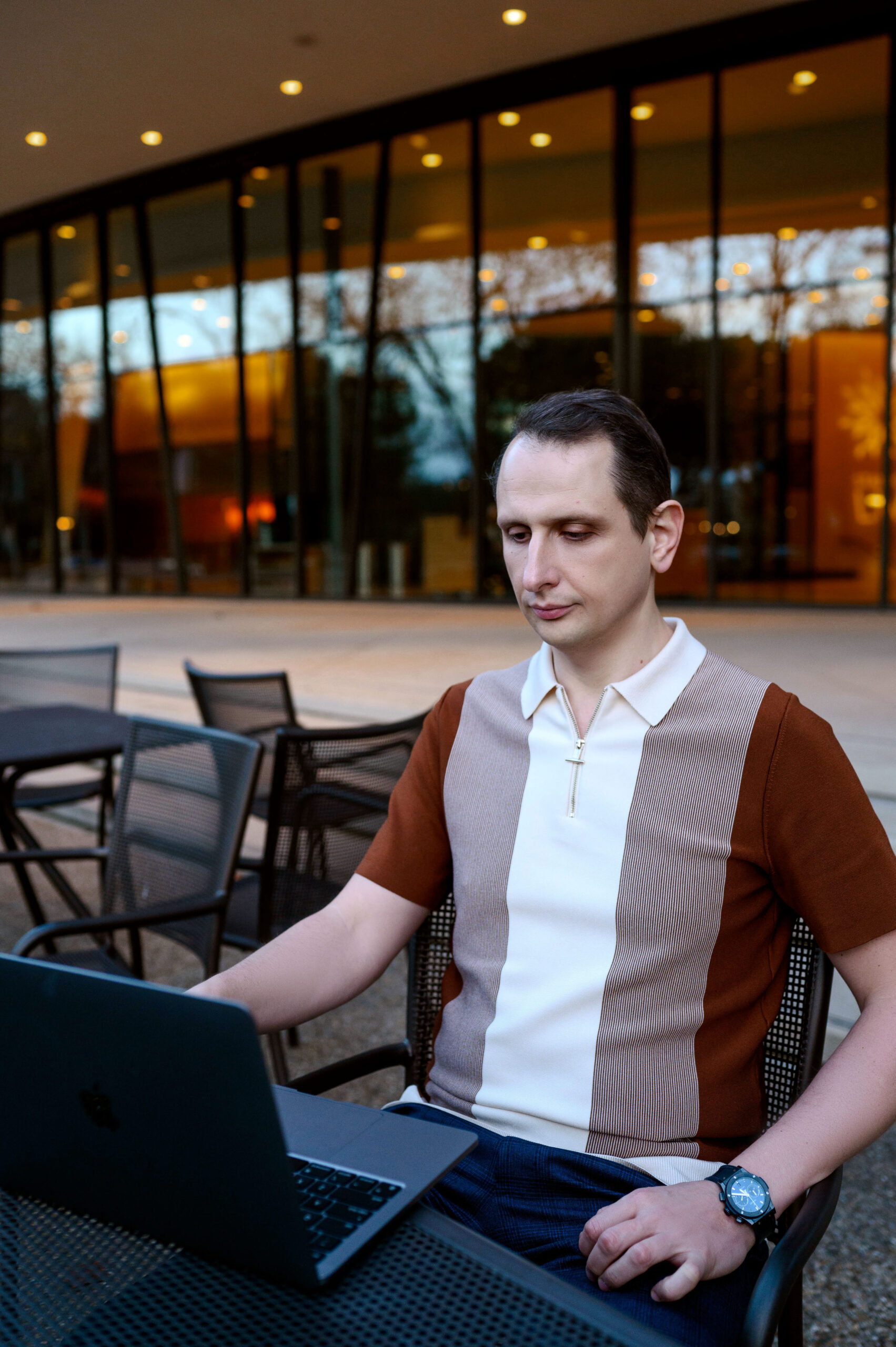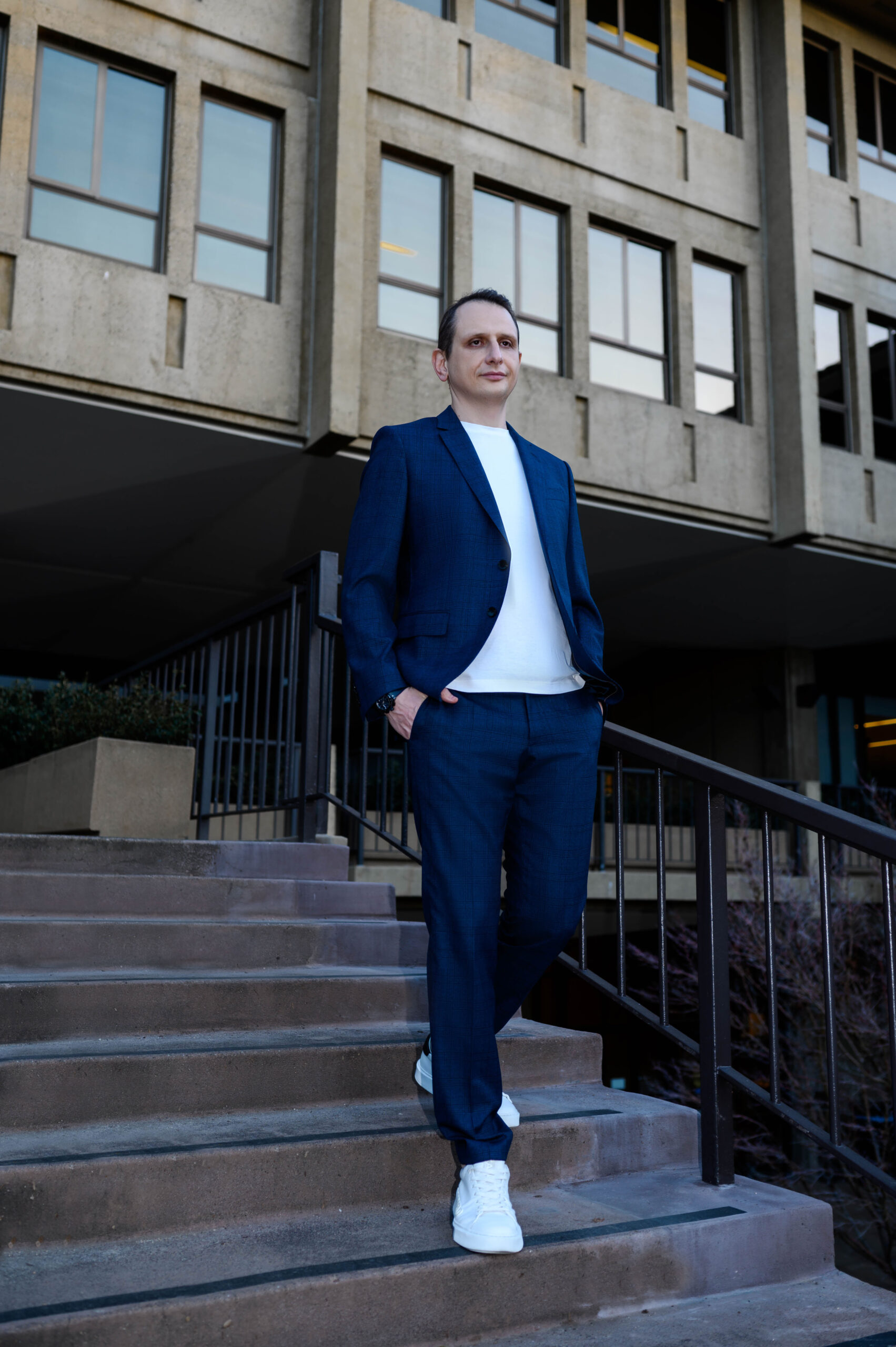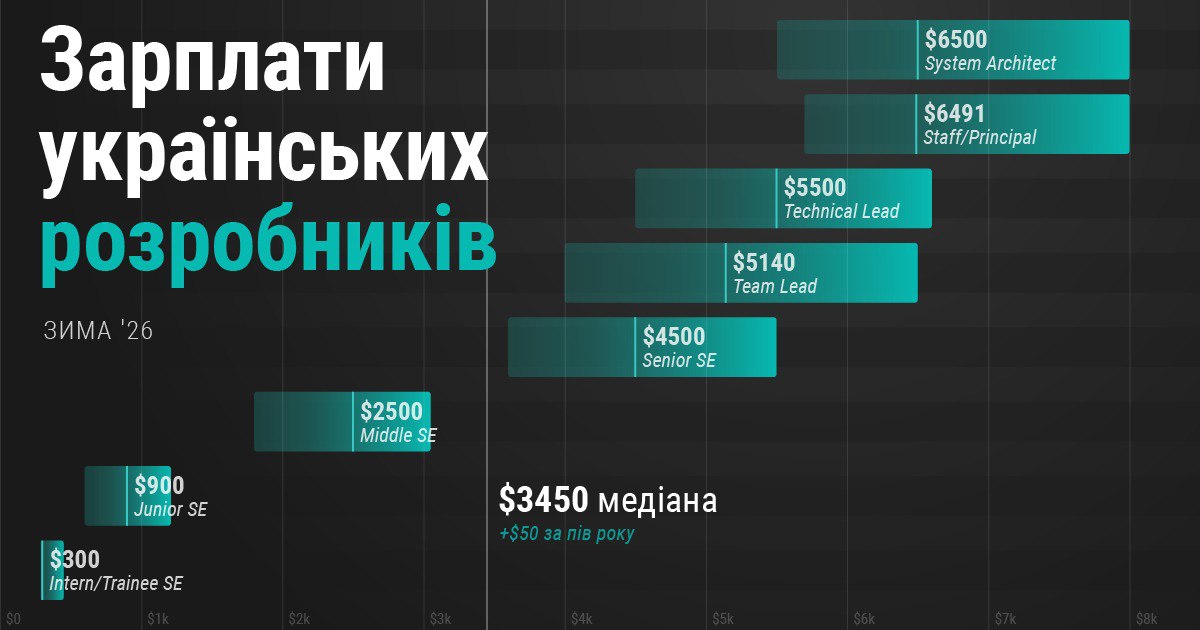Beyond Outsourcing: Alcor’s Turnkey R&D Centers Are Winning Over US and EU Tech Firms
In mid-2020, Dmytro Ovcharenko, founder of Alcor, was deep in talks with two recruitment agencies. He wasn’t looking to hire them — he wanted to acquire them and bring their recruiters in-house. For Ukraine, it was an unusual case of acqui-hiring, but for his business at the time, it was a necessity.
Alcor helps US and European product tech companies set up fully operational R&D centers with their own developer teams — covering everything from recruitment and office space to legal and accounting. Today, Alcor’s 100-strong team operates across Latin America and Eastern Europe, serving more than 30 clients. So, how does this business work?
From Idea to Business

Before launching Alcor, Ovcharenko had built a successful career at Luxoft, a major IT services company with offices in Ukraine. During one important meeting in the Kyiv office he noticed a pattern.
«I kept hearing big-name clients being mentioned, and realizing they were paying huge sums to intermediaries without direct access to the developers. At the same time, I saw that most of our top recruiters were working for product companies. Then it hit me: why not connect both sides and create value for everyone?» Dmytro recalls.
Ukraine has long been known for its highly skilled, adaptable developers, which fueled a booming outsourcing and outstaffing market in cities like Kyiv, Lviv, Kharkiv, and Odessa — a market that’s been thriving since independence.
Then Ovcharenko saw the opportunity in the Employer of Record (EOR) model — the approach he began implementing through Alcor. Traditionally, an EOR provider takes on the legal and administrative aspects of hiring developers, while the client manages the team and product development. This approach helps save time and resources on operational team management, but has certain gaps: no recruitment support for building a development team, and no help with essentials like buying equipment or renting office space.
Ovcharenko’s vision was to build a business that would combine EOR with full operational support, including recruitment and hiring. In return, the client company gets its own tech R&D center in a cost-effective location.
«Our first client is a perfect example,» he remembers. A US MedTech company had about 15 developers in Ukraine — no formal legal entity, a mediocre office, and ad hoc payments. «They told me, ‘I want these engineers to become my legal team in Ukraine, but I don’t want to handle it myself.’»
Alcor acted quickly, transferring the client’s operations into the Ukrainian legal and financial framework. The company ended up with a fully compliant, in-house team — and zero operational headaches.
Once his concept was proven, Ovcharenko set out to scale the business. He identified the greatest demand among clients from the US and Europe, who lacked the resources to open their own offices abroad. Together with his team, Dmytro started building turnkey R&D centers for these companies: recruiting developers, securing office space, purchasing equipment, and providing full legal, accounting, and HR support. Whether a client needed five engineers or two hundred, Alcor delivered — often assembling teams of hundreds in less than a year.
Unlike outsourcing, the clients don’t «rent» a team — they’re getting their own tech R&D center.
«Not everyone knows this, but a foreign customer can actually buy out a development team from a service company, sometimes paying up to $3 million for a team of 50. The thing is: before that, the company might have been paying those same people’s salaries for three years without truly owning the team. I offer clients their own team, along with full support in organizing it,» Dmytro explains.
Financially, there’s a significant difference. In traditional outsourcing, out of every $100 paid by the client, only about $50 actually reaches the employee. The rest goes to the service provider’s overhead and profit. At Alcor, it works differently: developers receive the full amount the client is willing to pay. The business model is based on charging a transparent management fee for project and team administration, but everything is discussed upfront and clearly spelled out in the contract. Importantly, the entire team works exclusively for the client, not for Alcor
Focus on Tech and Deep Market Knowledge

After securing his first clients, Ovcharenko realized he couldn’t be everything to everyone and needed to focus on one direction. He had a clear example to confirm this.
He referred to well-known global companies like Deel, Remote, and Rippling — large EOR players — and saw why they often drew criticism from their clients. They’re industry-agnostic: ready to help you hire 25 fishermen in Japan, 15 wind farm specialists in Norway, and 20 engineers in Australia.
Heavy automation and a lack of personalized support often come at cost. For example, a Ukrainian entrepreneur complained about poor customer service and double billing. Another case involved hiring a team in Mexico, where the client faced huge fines after downsizing the team without understanding local labor laws.
Downtown Works’ COO also pointed out a similar issue with Rippling: the company took payment but failed to fulfill its obligations. The problem was ignored to such an extent that the client had to escalate the issue publicly, yet even this did not prompt any action from Rippling.
«These are billion-dollar businesses, but let’s be honest: clients care about outcomes, not shiny packaging,» says Ovcharenko.
Alcor’s tech-only focus has allowed it to build a team of 40 specialist IT recruiters who know exactly how to find the right talent, what the market rates are, and how long specific hires will take. This expertise helps fill roles faster and with candidates who have relevant experience.
Next comes the choice of markets. Today, Alcor focuses on four specific regions: Ukraine, Poland, Romania, and Latin America. Each market launch happens only after a thorough study of local laws, financial regulations, and compliance requirements. Many clients are large enterprises or even IPO companies, so there is zero room for compliance mistakes in building R&D centers from scratch. That means, the Alcor team must know everything inside out to avoid creating any reputational or other problems for their partners.
That’s why, before entering a new geography, Alcor hires local specialists to join their team and prepare for any possible challenges.
«When you go to an outsourcing company, you get a team to work on your project. When you come to us, you get your own office with your name on the door, your people in your merch, and a team that’s part of your culture — building your product, not ours,» Dmytro says.
We talk for over an hour, reflecting on the pre-COVID times and the early days of the business, as well as the Ukrainian tech market back then. Of course, we discuss 2020 and 2021, when the entire tech sector was soaring «as fast as Falcon 9 launch,» he jokes. At the end, I ask him to share one key lesson he has learned through building his business over the past eight years.
«Ukrainian IT is great, no doubt,» he reflects. «But in recent years, I’ve been traveling a lot — Silicon Valley, other tech hubs — and I see a totally different approach to life and business. Don’t be afraid to look beyond your bubble.»
By the end of 2025, Ovcharenko plans to launch another European location and triple the company’s size within three years. For now, he’s busy: in May, Alcor had a record number of conversations with potential clients. After our call, Dmytro heads straight into a full day with his team and customers.
Beyond Outsourcing: Alcor’s Turnkey R&D Centers Are Winning Over US and EU Tech Firms
In mid-2020, Dmytro Ovcharenko, founder of Alcor, was deep in talks with two recruitment agencies. He wasn’t looking to hire them — he wanted to acquire them and bring their recruiters in-house. For Ukraine, it was an unusual case of acqui-hiring, but for his business at the time, it was a necessity.
Alcor helps US and European product tech companies set up fully operational R&D centers with their own developer teams — covering everything from recruitment and office space to legal and accounting. Today, Alcor’s 100-strong team operates across Latin America and Eastern Europe, serving more than 30 clients. So, how does this business work?
From Idea to Business

Before launching Alcor, Ovcharenko had built a successful career at Luxoft, a major IT services company with offices in Ukraine. During one important meeting in the Kyiv office he noticed a pattern.
«I kept hearing big-name clients being mentioned, and realizing they were paying huge sums to intermediaries without direct access to the developers. At the same time, I saw that most of our top recruiters were working for product companies. Then it hit me: why not connect both sides and create value for everyone?» Dmytro recalls.
Ukraine has long been known for its highly skilled, adaptable developers, which fueled a booming outsourcing and outstaffing market in cities like Kyiv, Lviv, Kharkiv, and Odessa — a market that’s been thriving since independence.
Then Ovcharenko saw the opportunity in the Employer of Record (EOR) model — the approach he began implementing through Alcor. Traditionally, an EOR provider takes on the legal and administrative aspects of hiring developers, while the client manages the team and product development. This approach helps save time and resources on operational team management, but has certain gaps: no recruitment support for building a development team, and no help with essentials like buying equipment or renting office space.
Ovcharenko’s vision was to build a business that would combine EOR with full operational support, including recruitment and hiring. In return, the client company gets its own tech R&D center in a cost-effective location.
«Our first client is a perfect example,» he remembers. A US MedTech company had about 15 developers in Ukraine — no formal legal entity, a mediocre office, and ad hoc payments. «They told me, ‘I want these engineers to become my legal team in Ukraine, but I don’t want to handle it myself.’»
Alcor acted quickly, transferring the client’s operations into the Ukrainian legal and financial framework. The company ended up with a fully compliant, in-house team — and zero operational headaches.
Once his concept was proven, Ovcharenko set out to scale the business. He identified the greatest demand among clients from the US and Europe, who lacked the resources to open their own offices abroad. Together with his team, Dmytro started building turnkey R&D centers for these companies: recruiting developers, securing office space, purchasing equipment, and providing full legal, accounting, and HR support. Whether a client needed five engineers or two hundred, Alcor delivered — often assembling teams of hundreds in less than a year.
Unlike outsourcing, the clients don’t «rent» a team — they’re getting their own tech R&D center.
«Not everyone knows this, but a foreign customer can actually buy out a development team from a service company, sometimes paying up to $3 million for a team of 50. The thing is: before that, the company might have been paying those same people’s salaries for three years without truly owning the team. I offer clients their own team, along with full support in organizing it,» Dmytro explains.
Financially, there’s a significant difference. In traditional outsourcing, out of every $100 paid by the client, only about $50 actually reaches the employee. The rest goes to the service provider’s overhead and profit. At Alcor, it works differently: developers receive the full amount the client is willing to pay. The business model is based on charging a transparent management fee for project and team administration, but everything is discussed upfront and clearly spelled out in the contract. Importantly, the entire team works exclusively for the client, not for Alcor
Focus on Tech and Deep Market Knowledge

After securing his first clients, Ovcharenko realized he couldn’t be everything to everyone and needed to focus on one direction. He had a clear example to confirm this.
He referred to well-known global companies like Deel, Remote, and Rippling — large EOR players — and saw why they often drew criticism from their clients. They’re industry-agnostic: ready to help you hire 25 fishermen in Japan, 15 wind farm specialists in Norway, and 20 engineers in Australia.
Heavy automation and a lack of personalized support often come at cost. For example, a Ukrainian entrepreneur complained about poor customer service and double billing. Another case involved hiring a team in Mexico, where the client faced huge fines after downsizing the team without understanding local labor laws.
Downtown Works’ COO also pointed out a similar issue with Rippling: the company took payment but failed to fulfill its obligations. The problem was ignored to such an extent that the client had to escalate the issue publicly, yet even this did not prompt any action from Rippling.
«These are billion-dollar businesses, but let’s be honest: clients care about outcomes, not shiny packaging,» says Ovcharenko.
Alcor’s tech-only focus has allowed it to build a team of 40 specialist IT recruiters who know exactly how to find the right talent, what the market rates are, and how long specific hires will take. This expertise helps fill roles faster and with candidates who have relevant experience.
Next comes the choice of markets. Today, Alcor focuses on four specific regions: Ukraine, Poland, Romania, and Latin America. Each market launch happens only after a thorough study of local laws, financial regulations, and compliance requirements. Many clients are large enterprises or even IPO companies, so there is zero room for compliance mistakes in building R&D centers from scratch. That means, the Alcor team must know everything inside out to avoid creating any reputational or other problems for their partners.
That’s why, before entering a new geography, Alcor hires local specialists to join their team and prepare for any possible challenges.
«When you go to an outsourcing company, you get a team to work on your project. When you come to us, you get your own office with your name on the door, your people in your merch, and a team that’s part of your culture — building your product, not ours,» Dmytro says.
We talk for over an hour, reflecting on the pre-COVID times and the early days of the business, as well as the Ukrainian tech market back then. Of course, we discuss 2020 and 2021, when the entire tech sector was soaring «as fast as Falcon 9 launch,» he jokes. At the end, I ask him to share one key lesson he has learned through building his business over the past eight years.
«Ukrainian IT is great, no doubt,» he reflects. «But in recent years, I’ve been traveling a lot — Silicon Valley, other tech hubs — and I see a totally different approach to life and business. Don’t be afraid to look beyond your bubble.»
By the end of 2025, Ovcharenko plans to launch another European location and triple the company’s size within three years. For now, he’s busy: in May, Alcor had a record number of conversations with potential clients. After our call, Dmytro heads straight into a full day with his team and customers.






